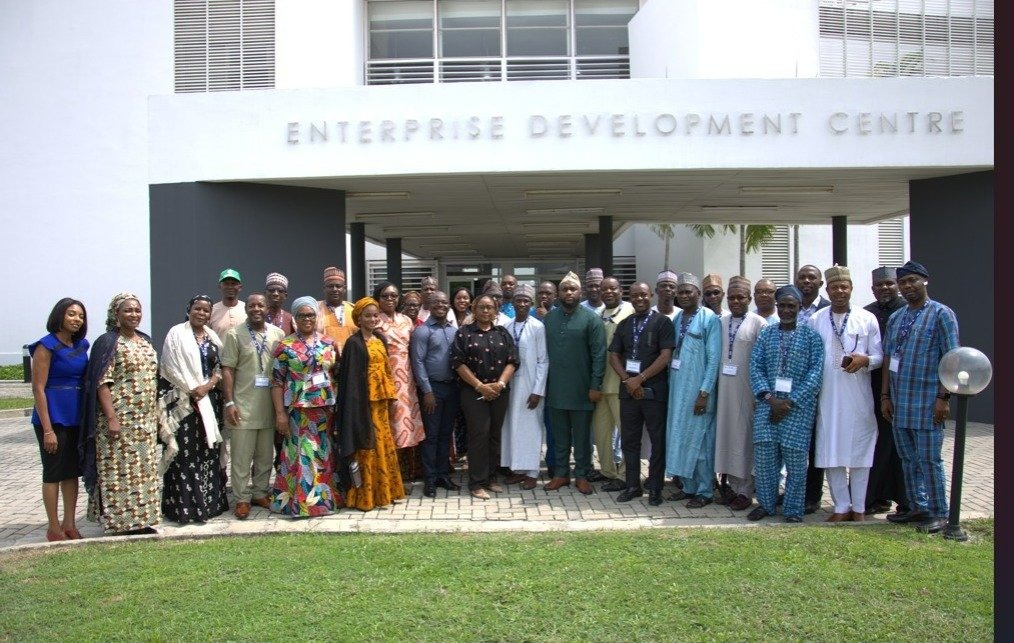Effective leadership is key to sustainable change, and that is why the NHIA instituted the Leadership Development Programme in collaboration with Results for Development and Pan-Atlantic University’s Enterprise Development Centre. The training programme has catered to different cadres of the NHIA’s leadership. This article highlights how the NLDP is preparing leaders to successfully navigate the complexities of the health insurance ecosystem.
In May 2022, health advocates applauded when President Muhammadu Buhari signed the new National Health Insurance Authority (NHIA) Act into law. The Act defines the responsibilities of the NHIA as promoter, regulator, and general overseer of health insurance. It also positions the NHIA as a driving force for Universal Health Coverage (UHC) in Nigeria.
NHIA’s Leadership Development Programme
One of the main challenges that affected the performance of the National Health Insurance Scheme (NHIS) was poor governance and management. As a result, for the NHIA to effectively carry out its mandate, it developed the Leadership Development Programme, a structured programme designed to equip NHIA staff with the necessary skills and knowledge to achieve the NHIA’s objectives.
It was John Maxwell that said, “Everything rises and falls on leadership.” This implies that without effective leadership, no sustainable change can occur. It is against this backdrop that Results for Development (R4D) collaborated with Pan-Atlantic University’s Enterprise Development Centre (EDC) to support the implementation of the National Health Insurance Authority’s Leadership Development Programme (NLDP). This three-day bespoke training was themed, ‘Sustaining the Leadership Capacity Within the Health Insurance Ecosystem’, and took place in Lagos State, at Pan-Atlantic University’s Lekki campus from the 22nd to the 24th of March 2023.
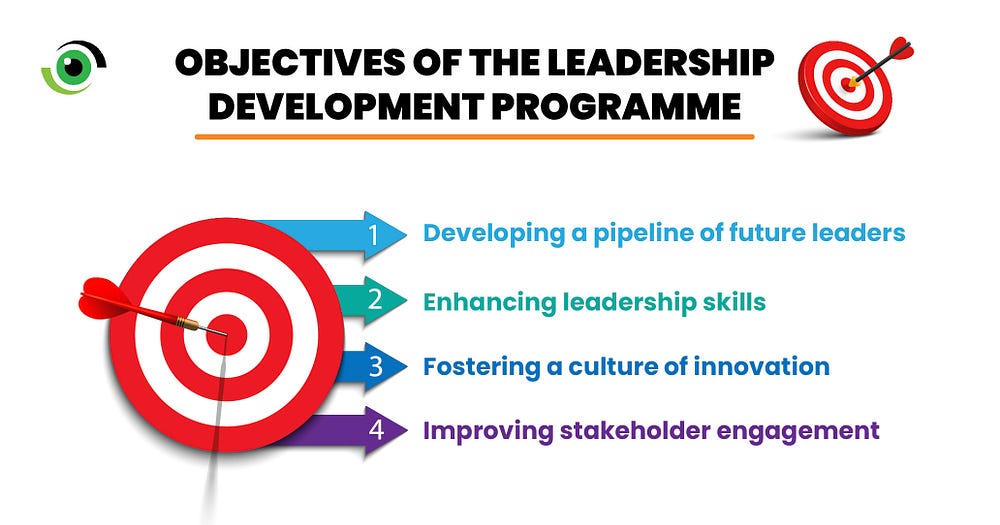
People in positions of leadership must be prepared to effectively handle the complexities of the health insurance ecosystem, which is why the NLDP was instituted, said Dr Nnennaya Kalu-Umeh, Technical Assistant to the Director General/Chief Executive Officer, NHIA, and NLDP Programme Manager. She pointed out the fact that in the last fifteen years, the NHIS had 11 chief executives. This meant that each executive spent an average of one and half years in a job with a five-year tenure. “Almost every year, NHIA saw 2 or 3 general managers exiting due to retirement or age, and people were thrust into leadership positions without being prepared for it, (because) there was no succession planning (so) there was a gap.”
Equipping the top actors with the necessary skills to make the paradigm shift required for the effective implementation of the NHIA is a step in the right direction. In his opening remarks, Dr Hope Uweja, R4D’s country director said, “Leadership in the health sector is just as important as the technical aspects.”
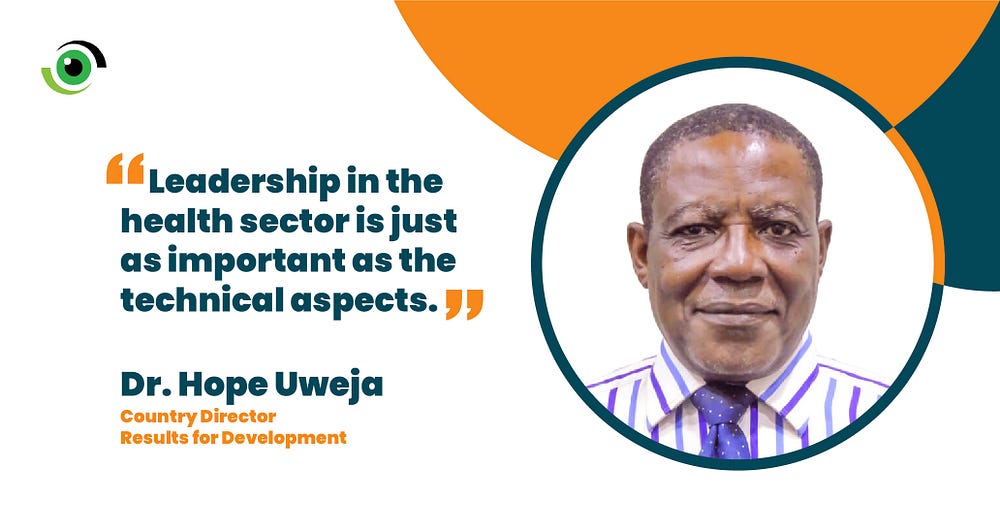
Preparing leaders for leadership
After conducting a needs assessment and identifying critical capacity gaps that needed to be addressed, R4D and NLDP were intentional about finding indigenous institutions with widely acclaimed leadership programmes, and Pan-Atlantic University’s Enterprise Development Centre was chosen. NLDP also has Memorandums of Understanding (MOUs) with Ahmadu Bello University (ABU) Zaria, UNN, Nsukka, and the Strategic Purchasing Africa Resource Centre (SPARC) in Kenya. These MOUs will guarantee the development of learning modules that are tailored to the needs of NLDP.
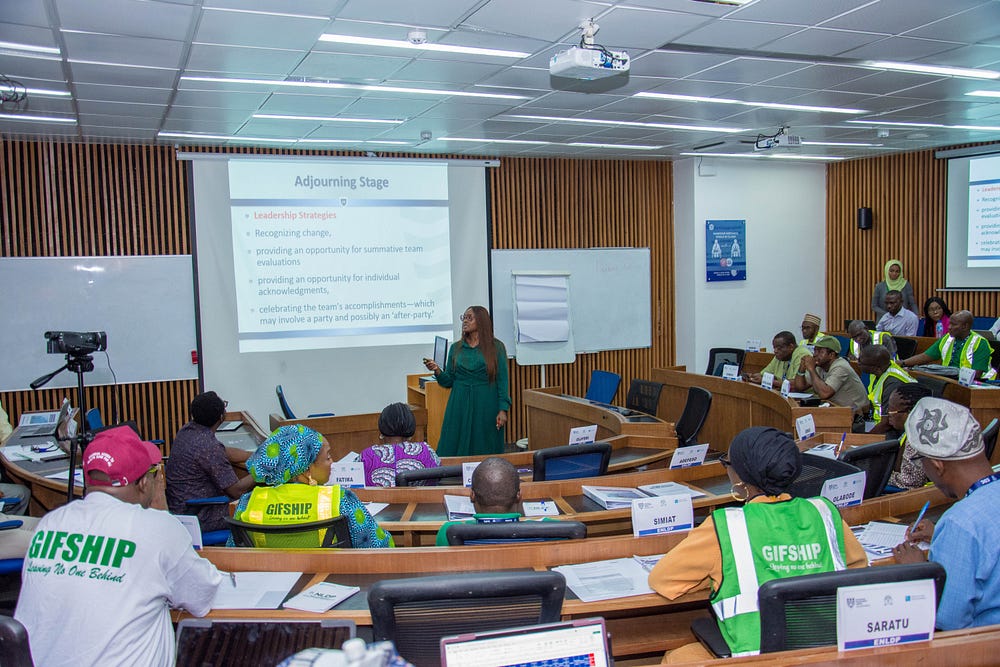
The first, second and third cohorts of the NLDP, which took place in June 2022, were designed for the NHIA’s senior executive cadre, State Coordinators of NHIA and CEOs of State Social Health Insurance Agencies, respectively. The just concluded training included the fourth cohort of newly appointed state coordinators.
Over the course of the three days, members of the cohort were exposed to engaged learning, which resulted in lively discussions. Seasoned experts taught masterclasses on important leadership concepts like, critical thinking; emotional intelligence; team building; change management; health financing; and succession planning.
“The practicality of the course makes it unique. The fact that we’re doing it by ourselves, for ourselves, makes it of added value,” said Mrs Moji Makanjuola, Executive Director, International Society of Media in Public Health.
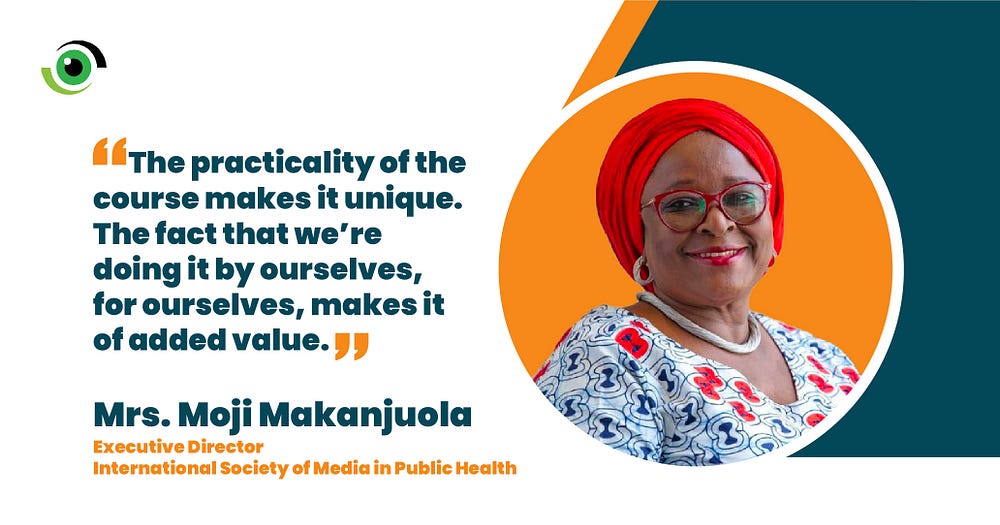
This capacity building effort is not concentrated at the top alone, “we are bringing it down to assistant directors and principal managers. Our partnership with Ahmadu Bello University (ABU), Zaria, and the Health Policy Research Centre at the University of Nigeria, (UNN) Nsukka, will take care of the lower cadre of staff in those regions. This way, we’re preparing them for leadership, and planning for succession,” Femi Akingbade, General Manager, NHIA, stated.
Why leadership development is essential
During his session titled, ‘Leadership for Change’, Dr Adedamola Dada, Chief Medical Director, Federal Medical Centre, Ebutte-Metta, outlined how a failing public health centre was transformed into a thriving one under his leadership in the space of two years. He demonstrated how a commitment to professional and personal development was crucial to creating a clear vision for change.
For the NHIA to fulfil its mandate of ensuring that all Nigerians, including people in the vulnerable population group, have access to quality healthcare, visionary and empathetic leadership is key. “We cannot just sit in our offices and say we’re regulating the ecosystem. We need to be out there as an organisation to manage the human resources we have, efficiently and effectively,” Dr Kalu-Umeh said.
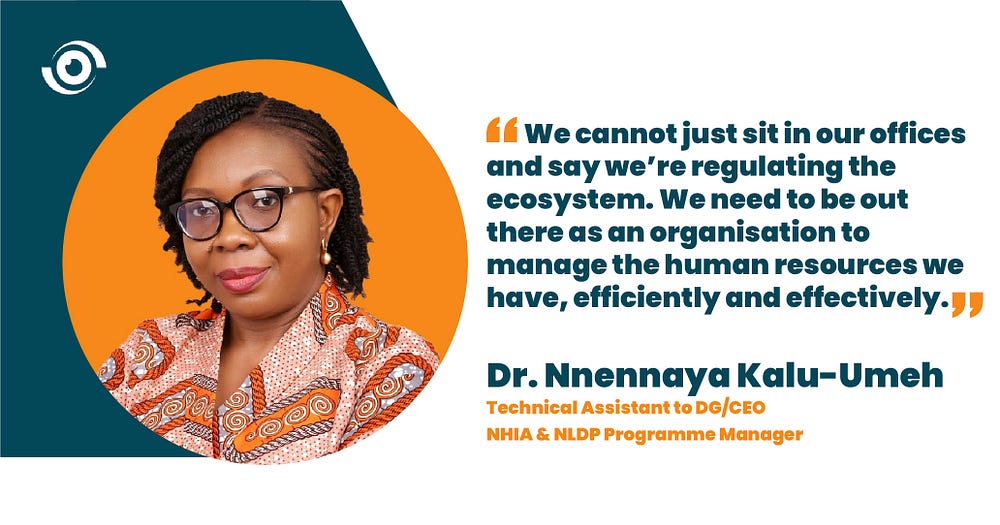
From disruption to stability
According to Mr Akingbade, one of the things that the training has clearly improved upon is stability. The disruption caused by unsustainable leadership styles at the national and state levels has been drastically reduced. He added that evaluations have revealed an improvement in professional and interpersonal relationships at all levels, as well as the NHIA’s state of affairs.
Collaborations and partnerships
Achieving UHC requires a collaborative effort because no single organisation can fulfil the mandate of leaving no one behind in a silo. Partnerships and collaboration are key to plugging capacity gaps and improving service delivery. Confidence in the public healthcare system has been eroded, and to restore it, effective leadership is essential.
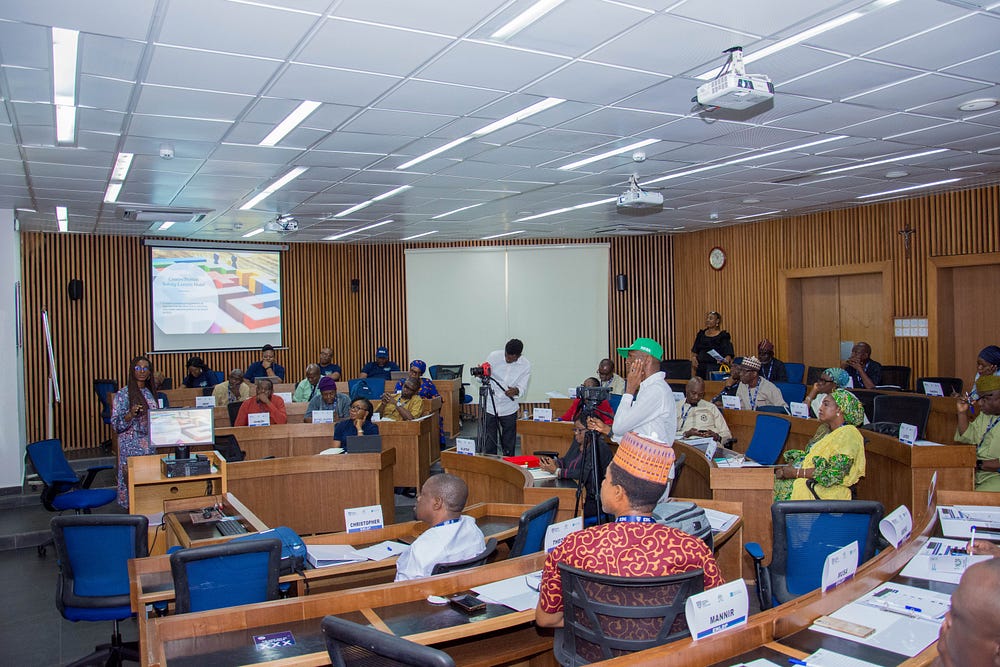
Mr Bethel-Kashim, State Coordinator, NHIA Ikeja state office, plans to be an active listener when he returns to base. According to him, “The expectations that came with my new appointment were quite high, so I came (to the training) with the mind of a sponge. From the very first day, my expectations were exceeded. There were a lot of things about managing people that I wasn’t conversant with, and I’ve identified areas where I’ve fallen short, and where I can improve”.
Mrs Rita Chukwu, State Coordinator, NHIA Yaba state office, is committing to being a more motivational leader and to develop the capacity of her staff. “I’ve been to a good number of trainings in my career, and I can say that this is the best one so far; the sessions were so practical and relatable. I understand now that no leader is perfect, and that there’s always room for improvement. I recommend this training for any leader,” she said.


